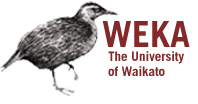Data mining is the process of extracting and discovering patterns in large data sets involving methods at the intersection of machine learning, statistics, and database systems. Data mining is an interdisciplinary subfield of computer science and statistics with an overall goal of extracting information from a data set and transforming the information into a comprehensible structure for further use. Data mining is the analysis step of the "knowledge discovery in databases" process, or KDD. Aside from the raw analysis step, it also involves database and data management aspects, data pre-processing, model and inference considerations, interestingness metrics, complexity considerations, post-processing of discovered structures, visualization, and online updating.
A Chief Data Officer (CDO) is a corporate officer responsible for enterprise-wide governance and utilization of information as an asset, via data processing, analysis, data mining, information trading and other means. CDOs usually report to the chief executive officer (CEO), although depending on the area of expertise this can vary. The CDO is a member of the executive management team and manager of enterprise-wide data processing and data mining.
The Cross-industry standard process for data mining, known as CRISP-DM, is an open standard process model that describes common approaches used by data mining experts. It is the most widely-used analytics model.

Waikato Environment for Knowledge Analysis (Weka) is a collection of machine learning and data analysis free software licensed under the GNU General Public License. It was developed at the University of Waikato, New Zealand and is the companion software to the book "Data Mining: Practical Machine Learning Tools and Techniques".
SIGKDD, representing the Association for Computing Machinery's (ACM) Special Interest Group (SIG) on Knowledge Discovery and Data Mining, hosts an influential annual conference.
Jiawei Han is a Chinese-American computer scientist and writer. He currently holds the position of Michael Aiken Chair Professor in the Department of Computer Science at the University of Illinois at Urbana-Champaign. His research focuses on data mining, text mining, database systems, information networks, data mining from spatiotemporal data, Web data, and social/information network data.

Data Mining and Knowledge Discovery is a bimonthly peer-reviewed scientific journal focusing on data mining published by Springer Science+Business Media. It was started in 1996 and launched in 1997 by Usama Fayyad as founding Editor-in-Chief by Kluwer Academic Publishers. The first Editorial provides a summary of why it was started.
Hans-Peter Kriegel is a German computer scientist and professor at the Ludwig Maximilian University of Munich and leading the Database Systems Group in the Department of Computer Science. He was previously professor at the University of Würzburg and the University of Bremen after habilitation at the Technical University of Dortmund and doctorate from Karlsruhe Institute of Technology.
AMiner is a free online service used to index, search, and mine big scientific data.

Foster Provost is an American computer scientist, information systems researcher, and Professor of Data Science, Professor of Information Systems and Ira Rennert Professor of Entrepreneurship at New York University's Stern School of Business. He is also the Director for the Data Science and AI Initiative at Stern's Fubon Center for Technology, Business and Innovation. Professor Provost has a Bachelor of Science from Duquesne University in physics and mathematics and a Master of Science and Ph.D. in computer science from the University of Pittsburgh.
Rexer Analytics’s Annual Data Miner Survey is the largest survey of data mining, data science, and analytics professionals in the industry. It consists of approximately 50 multiple choice and open-ended questions that cover seven general areas of data mining science and practice: (1) Field and goals, (2) Algorithms, (3) Models, (4) Tools, (5) Technology, (6) Challenges, and (7) Future. It is conducted as a service to the data mining community, and the results are usually announced at the PAW conferences and shared via freely available summary reports. In the 2013 survey, 1259 data miners from 75 countries participated. After 2011, Rexer Analytics moved to a biannual schedule.
Jie Tang is a full-time professor at the Department of Computer Science of Tsinghua University. He received a PhD in computer science from the same university in 2006. He is known for building the academic social network search system AMiner, which was launched in March 2006 and now has attracted 2,766,356 independent IP accesses from 220 countries. His research interests include social networks and data mining.

Usama M. Fayyad is an American-Jordanian data scientist and co-founder of KDD conferences and ACM SIGKDD association for Knowledge Discovery and Data Mining. He is a speaker on Business Analytics, Data Mining, Data Science, and Big Data. He recently left his role as the Chief Data Officer at Barclays Bank.
Social media mining is the process of obtaining data from user-generated content on social media in order to extract actionable patterns, form conclusions about users, and act upon the information. Mining supports targeting advertising to users or academic research. The term is an analogy to the process of mining for minerals. Mining companies sift through raw ore to find the valuable minerals; likewise, social media mining sifts through social media data in order to discern patterns and trends about matters such as social media usage, online behaviour, content sharing, connections between individuals, buying behaviour. These patterns and trends are of interest to companies, governments and not-for-profit organizations, as such organizations can use the analyses for tasks such as design strategies, introduce programs, products, processes or services.
Domain driven data mining is a data mining methodology for discovering actionable knowledge and deliver actionable insights from complex data and behaviors in a complex environment. It studies the corresponding foundations, frameworks, algorithms, models, architectures, and evaluation systems for actionable knowledge discovery.
Arthur Zimek is a professor in data mining, data science and machine learning at the University of Southern Denmark in Odense, Denmark.

Gautam Das is a computer scientist in the field of databases research. He is an ACM Fellow and IEEE Fellow.

Hui Xiong is a data scientist. He is a distinguished professor at Rutgers University and a distinguished guest professor at the University of Science and Technology of China (USTC).
Wei Wang is a Chinese-born American computer scientist. She is the Leonard Kleinrock Chair Professor in Computer Science and Computational Medicine at University of California, Los Angeles and the director of the Scalable Analytics Institute (ScAi). Her research specializes in big data analytics and modeling, database systems, natural language processing, bioinformatics and computational biology, and computational medicine.

Nitesh V. Chawla is a computer scientist and data scientist currently serving as the Frank M. Freimann Professor of Computer Science and Engineering at the University of Notre Dame. He is the Founding Director of the Lucy Family Institute for Data & Society. Chawla's research expertise lies in machine learning, data science, and network science. He is also the co-founder of Aunalytics, a data science software and cloud computing company. Chawla is a Fellow of the American Association for the Advancement of Sciences (AAAS), Association for Computing Machinery (ACM), a Fellow of the Association for the Advancement of Artificial Intelligence, a Fellow of the Asia Pacific Artificial Intelligence Association, and a Fellow of the Institute of Electrical and Electronics Engineers (IEEE). He has received multiple awards, including the 1st Source Bank Commercialization Award in 2017, Outstanding Teaching Award (twice), IEEE CIS Early Career Award, National Academy of Engineering New Faculty Award, and the IBM Big Data Award in 2013. One of Chawla's most recognized publications, with a citation count of over 25,000, is the research paper titled "SMOTE: Synthetic Minority Over-sampling Technique." Chawla's research has garnered a citation count of over 62,000 and an H-index of 80.







